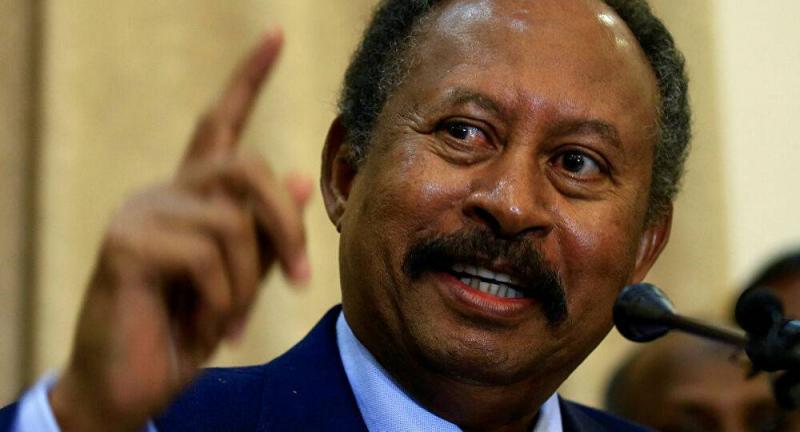Sudanese Prime Minister Abdullah Hamdok warned that Ethiopia's insistence on the second filling of the Renaissance Dam next July, without an agreement among the parties, would have catastrophic effects on Sudan.
Sputnik reported a statement from Hamdok's office during his meeting with the European Union envoy, Finnish Foreign Minister Pekka Haavisto, in which he warned that Ethiopia's approach to unilaterally fill the dam in July, without an international law framework that ensures operational safety and information exchange, would have disastrous consequences. Hamdok revealed to the EU envoy the impact the dam had on Sudan and many Sudanese projects during the first filling last year, which amounted to 5 billion cubic meters.
Regarding his lack of intent to engage in war with Ethiopia, Hamdok emphasized that his country's position on this issue remains firm, noting that the border issue has been settled since the agreements of 1902, and that what remains is to demarcate the borders and to consider remaining issues in the spirit of good neighborliness and the long-standing relations between the two countries.
In the same context, Sudanese Minister of Irrigation Yaser Abbas confirmed during his meeting with the European envoy Sudan's supportive stance toward the construction of the Renaissance Dam, viewing it as Ethiopia's right to development, as long as it does not adversely affect Sudan. This is contingent upon the signing of a binding legal agreement. Abbas presented the EU envoy with Sudan's proposal to expand the mediation umbrella in the negotiations over the dam to include the United Nations.
The Sudanese minister explained to the EU envoy the dangers of Ethiopia unilaterally announcing the commencement of the second filling of the dam in July, even without an agreement or information exchange, stating that Addis Ababa's decision directly impacts the Rosaries Dam and all life along the Blue Nile, including hydropower generation from the Rosaires Dam and Merowe Dam, as well as drinking water stations on the Blue Nile and the main Nile up to the city of Atbara, adding that it threatens the lives and safety of nearly half of Sudan's population.
Egypt had announced months ago that the six-party consultative meeting regarding the Renaissance Dam failed to make any progress due to disagreements on how to resume negotiations. The Egyptian Foreign Ministry clarified at that time that Sudan insisted on assigning experts appointed by the African Union to propose solutions to contentious issues and formulate a Renaissance Dam agreement. Both Egypt and Ethiopia had reservations about this proposal. Egypt added that the African Union experts are not specialists in the technical and engineering fields related to water resource management and dam operations.
So far, negotiations between Ethiopia on one side and Egypt and Sudan regarding the Renaissance Dam have not resulted in an agreement that satisfies the downstream countries, which claim that the dam will affect their share of Nile water.




